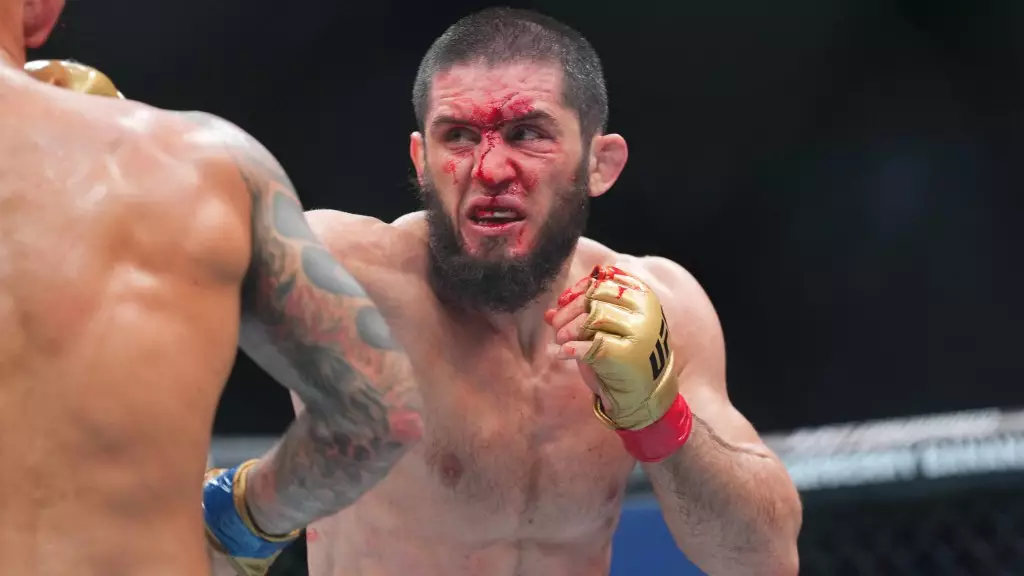Mixed Martial Arts (MMA) continues to thrive in popularity, framing intricate narratives that evolve alongside its dynamic roster of fighters. Among these narratives, the debate over who stands as the No. 1 pound-for-pound fighter consistently emerges as a hot topic. This discourse gained fervor in 2024, particularly due to comments made by UFC CEO Dana White, who staunchly endorsed Jon Jones as the sole contender for this prestigious title while sidelining other potential candidates, notably Islam Makhachev, the current UFC lightweight champion.
At the heart of the discussion lies a critical angle: fight frequency. Javier Mendez, Makhachev’s trainer, highlighted a pivotal aspect when he queried the activity level of Jon Jones over the past four years. The response was telling—Jones engaged in just two fights during this span, raising questions about his readiness and relevance in the pound-for-pound conversation. Mendez pointedly remarked, “If Islam were to do the same, I’d put Jon Jones at No. 1—but he hasn’t fought (as much).”
This perspective underscores a fundamental principle in MMA: combatants cannot stake their claim to greatness solely on past achievements; they must also demonstrate consistent performance against top-tier opponents. Makhachev’s more extensive fight history—with eight bouts in the same timeframe—positions him as a contender warranting serious consideration for the top spot. This comparison reveals a pronounced starkness in activity; it emphasizes the importance of current performance over historical dominance.
Yet, the debate extends beyond mere numbers. Mendez further critiqued the caliber of competition each fighter faced during their respective bouts. He stressed that Makhachev has engaged only with elite fighters, including a notable encounter with Alexander Volkanovski, a matchup highlighting Makhachev’s readiness to face the best. In contrast, Jones’ recent bouts were against aged opponents, notably Stipe Miocic, who at 42 had not fought in four years before stepping into the octagon with Jones. Mendez’s assertion that “Islam’s fights have always been against No. 1 contenders” amplifies the question of durability and relevance in today’s MMA landscape.
While Jon Jones undeniably boasts an impressive career—having never lost in a professional fight—his infrequent bouts in a rapidly evolving sport leave room for skepticism. Those who support Jones as the best may find it challenging to argue against Makhachev’s consistent performances against high-caliber fighters repeatedly, thus complicating the narrative surrounding greatness versus contemporary relevance.
Mendez’s remarks also bring clarity to the ongoing debate by differentiating between being the ‘greatest of all time’ and the current pound-for-pound best. He recognizes and respects Jones’ legacy, emphasizing that it should not overshadow the present realities of fight activity and engagement with elite competitors. His distinction serves as a reminder that the context of discussions in MMA is ever-changing, shaped not solely by an athlete’s historical achievements, but also by their current state and performance level.
As the narrative around the pound-for-pound debate carries over into 2025, this evolving discourse promises to be an engaging one. Fans and analysts alike will likely continue to grapple with the definitions that elevate certain fighters over others while navigating a landscape where accolades must be authenticated by recent performances against formidable adversaries.
Makhachev’s upcoming fight on January 18 at UFC 311 against Arman Tsarukyan presents him with an opportunity to further solidify his standing in the discussion. A rematch against Tsarukyan—who gave a respectable account of himself in their first encounter—will be critical for Makhachev. Should he emerge victorious, this would add yet another victory against a competitive opponent to his resume and bolster his claim to the top of the pound-for-pound rankings.
The dialogue surrounding the pound-for-pound best fighter in MMA transcends simple allegiance to revered names. It encompasses an intricate analysis of activity level, quality of opposition, and the ability to deliver under pressure. As MMA enthusiasts prepare for another year of intense competition, the debates are set to continue, and the answer to the question of ‘who is the best’ remains delightfully elusive.

